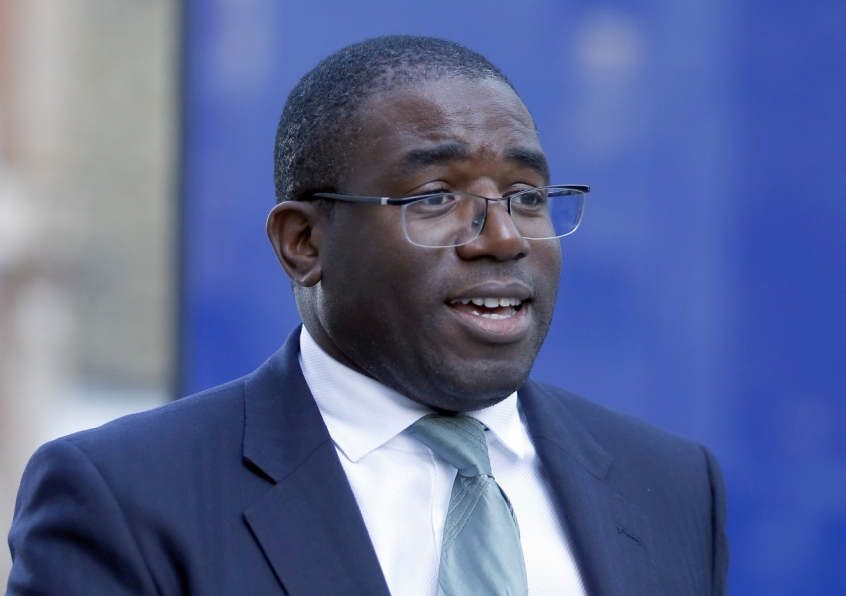It's been an interesting few weeks for David Lammy, the Labour MP for Tottenham.
Only last month he spoke out in parliament for those members of the Windrush generation whose lives had been turned upside down by government policies which discriminated against British citizens who had lived and worked in this country for decades.
Despite the fact that Amelia Gentleman from the Guardian had been reporting these incidents for months it wasn't until Lammy and others gave voice to those who had suffered that a chain of events was set in motion which led to the resignation of the then home secretary Amber Rudd.

It's worth remembering the individual stories that Lammy drew attention to in his speeches in the House of Commons. British citizens arrested and incarcerated, homes lost, cancer treatment denied, human chaff in a state-sponsored operation against its own citizens as part of creating a hostile environment for foreigners. Lammy rightly gave a voice to the voiceless and in so doing became a target for racists always ready to suggest someone black should 'go home' – which incidentally for Lammy would mean a short Tube ride back to Tottenham.
And then we had the recent Royal wedding – a celebration which featured Michael Curry, Rose Hudson Wilkin, cellist Sheku Kanneh-Mason and the Kingdom Choir with its director Karen Gibson. In terms of a multi-racial celebration with a dual-heritage bride and her black mother becoming part of the British establishment there was much to rejoice over in terms of racial barriers being broken down – something that Lammy noted in a tweet celebrating 'against the odds a great new symbol of all that is still possible and hopeful in modern Britain."
Various responses to the tweet highlighted that for many bringing the issue of race into the Royal wedding was a step too far. While for some Lammy was stating the patently obvious in remarking on and celebrating the historical significance of this for the Royal family, many of those responding to the tweet – including the night editor of a national newspaper – criticised or attacked Lammy for raising the issue of race at all.
In the midst of this the hate mate still kept coming. Earlier this week Lammy took to social media to highlight some of the more recent race hate mail he had received, suggesting he 'get back in a canoe and paddle back to ni**er land, climb up a tree and eat a banana'. He wouldn't be intimidated from speaking out about matters of injustice he said, despite the jibes, the attacks and the criticism.
And then today came the news that Oxford University had published data showing that one in four of its colleges failed to admit a single black British student each year between 2015 and 2017.
This is an issue on which David Lammy has campaigned since 2010, highlighting the failure of Oxford and Cambridge to admit black British students in any meaningful numbers thereby entrenching elitism and restricting social mobility.
Whether it was 'the Oxbridge whitewash' in 2010, the 'institutional bias' in 2013 or the 'elitist' and 'entrenched privilege' in 2017, David Lammy has consistently made reasoned data-based arguments and provided analysis to highlight a picture where Oxbridge's efforts to widen intake have been shown to be pitiful. The reasons are debatable and whether they amount to institutional bias, systemic discrimination or simply evidence of an institution saying one thing and doing another, this week's figures are evidence of a colossal failure by Oxford University and its leadership to address a problem which they have known about for far too long.
It highlights how far we have to go as a nation before we can even begin to think about talking of a society where racism plays no part.
In his response to the data David Lammy said on Wednesday: 'Oxford is a bastion of entrenched, wealthy, upper class, white, southern privilege. We need systemic change.'
This brought a swift response from a Church of England priest who described Lammy as being 'bang out of order' in criticising Oxford, suggesting that Lammy's criticsm was simply 'bitter'.
Rev Liam Beadle prefaced the comment by saying he was from inner city northern England – the implication clearly being that as such he was living proof that Lammy's criticism of southern privilege was wrong. despite the welter of data suggesting otherwise.
Beadle could find comfort in knowing that he wasn't alone in criticising David Lammy for highlighting the issues at Oxford. Doubtless the Labour MP will be receiving more cards and letters to add to the pile he has recently received which take him to task for daring to speak out.
Others to support Mr Beadle – at least for a short time – included the University itself which retweeted him until challenged by David Lammy for doing so. The swift apology from Oxford University highlighted the questionable wisdom of labelling David Lammy's comments as 'bitter' rather than acknowledging the fact that Oxford University has a serious problem with its admissions and race.
David Lammy has been brave and conscientious in speaking out for the Windrush generation. He has rightly celebrated the wider significance of a British Royal family, which like so many others in this country now includes a diverse range of heritage.
His campaign to highlight the injustices at Oxford has been long fought, data driven and for people other than himself. For him it is a matter of justice. In this he rightly deserves to be supported by a Church which has itself continues to struggle with issues of race and representation.
While it was a delight to see Rose Hudson Wilkin play a part in the Royal wedding it is remarkable that as one of the country's leading black women priests, a chaplain to the Queen and chaplain to the Speaker of the House of Commons, that she has yet to become a diocesan bishop. As someone who has led, ministered, pastored and consoled at the highest levels and who commands respect from many, she serves as an outstanding counter- balance to those whose comments serve only to remind us how far we have to go as a Church when to calls for racial justice are treated as bitterness.
And why does this all matter ?
Because people are still being attacked simply for being non white, because being non-white means you are likely to be paid less, and because Universities other than Oxford and Cambridge are still failing to deal with issues of racism that occur with a depressing regularity.
It matters because despite these stories and statistics you never have to look too far for those who suggest that racism in Britain is a myth altogether.
Rev Arun Arora is vicar of St Nicholas Church, Durham and former director of communications for the Church of England.













